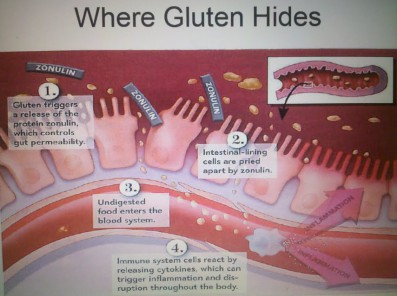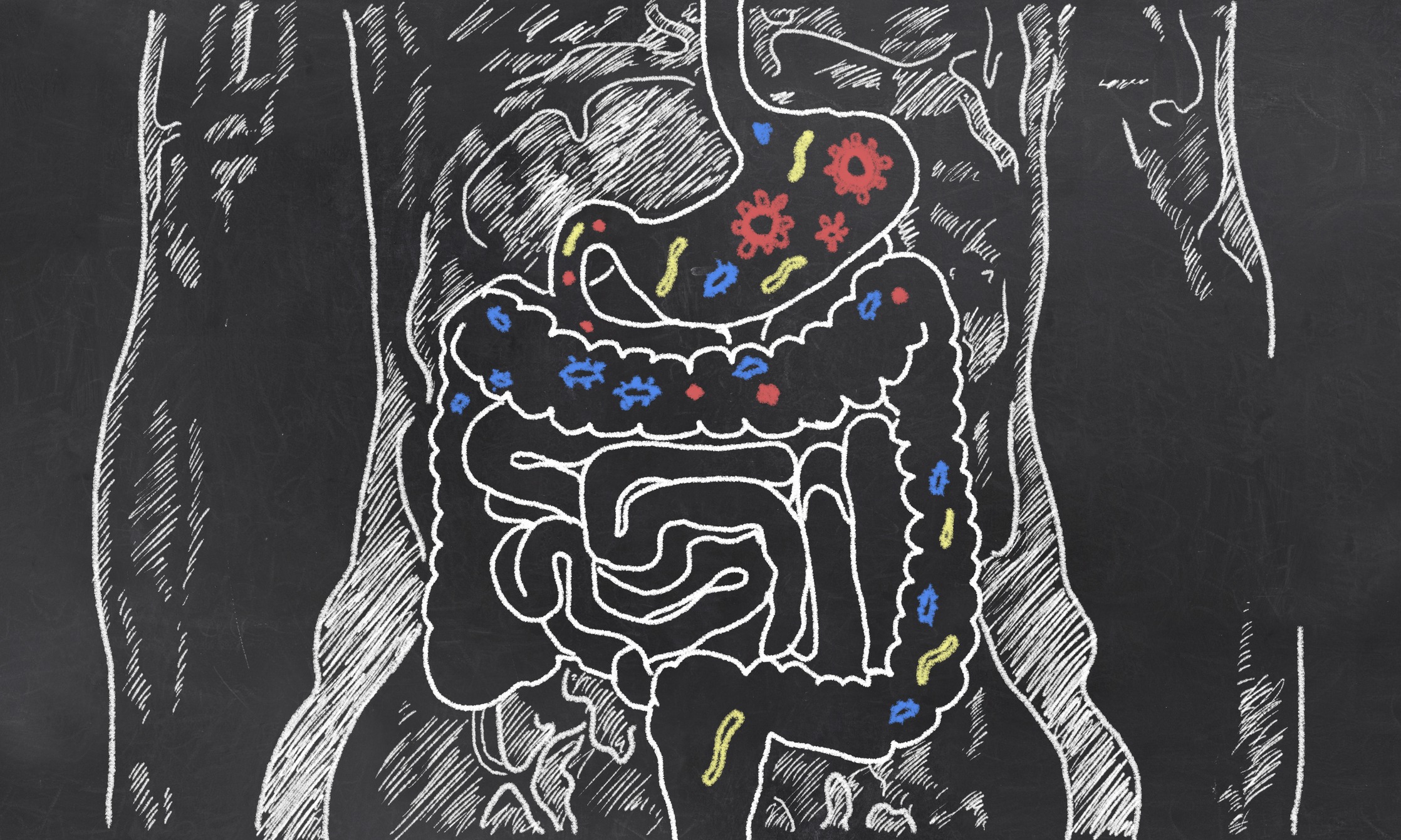Your gut is the gateway to health. I’ve learned this first hand! No amount of abdominal work will fix a puffy, bloated stomach. It comes down to the food you put into your body, and making sure that food is right for you.
The gut is naturally permeable to small molecules in order to absorb nutrients from your food. In sensitive people (and the number of sensitive people is growing), gluten can cause the gut cells to release zonulin, a protein that breaks apart tight junctions in the intestinal lining. You basically get tiny holes in the lining of your intestines – a condition called “leaky gut”.

As a consequence, some bacteria, toxins and incompletely digested food particles “leak” out of the intestines into the blood stream. Your immune system marks these “foreign invaders” as pathogens and attacks them, causing autoimmunity (your body attacks its own tissues). This over-response of your immune system causes you to eventually become sensitive to the environment and leads to malnourishment because your body no longer has the capacity to absorb minerals and nutrients from your food. Here is an AMAZING video of an MD explaining leaky gut (it’s worth watching!)
Here are 9 signs you have Leaky Gut:
1. Digestive issues such as gas, bloating, diarrhea or irritable bowel syndrome (IBS).
2. Seasonal allergies or asthma.
3. Big hormonal imbalances ( PMS etc)
4. Diagnosis of an autoimmune disease such as rheumatoid arthritis, Hashimoto’s thyroiditis, lupus, psoriasis, or celiac disease.
5. Diagnosis of chronic fatigue or fibromyalgia.
6. Mood and mind issues such as depression, anxiety, ADD or ADHD.
7. Skin issues such as acne, rosacea, or eczema.
8. Diagnosis of candida (yeast) overgrowth.
9. Food allergies or food intolerances.
WHAT CAUSES LEAKY GUT?
In addition to gluten, other inflammatory foods like dairy, sugar and excessive alcohol, are implicated as well. The most common infectious causes of leaky gut are candida (yeast) overgrowth, intestinal parasites, and small intestine bacterial overgrowth (SIBO). Toxins come in the form of medications, like Motrin, Advil, steroids, antibiotics, and acid-reducing drugs, and environmental toxins like mercury, pesticides and BPA from plastics. Stress and lack of enough hydrochloric acid in the stomach also contribute to a leaky gut.
HOW DO YOU HEAL A LEAKY GUT?
I have clients follow an elimination diet which removes the toxic and inflammatory foods for a certain period of time. Here are some excellent tips. In addition, I have them follow a 4R program to heal their gut. The 4R program is as follows.
1. Remove.
Remove the bad. The goal is to get rid of things that negatively affect the environment of the GI tract, such as inflammatory and toxic foods, and intestinal infections.
2. Replace.
Replace the good. Add back the essential ingredients for proper digestion and absorption, such as digestive enzymes, hydrochloric acid and bile acids.
3. Reinoculate.
It’s critical to restore beneficial bacteria to reestablish a healthy balance of good bacteria.
4. Repair.
It’s essential to provide the nutrients necessary to help the gut repair itself. One of my favourite supplements is L-glutamine, an amino acid that helps to rejuvenate the lining of the gut wall.
Cheers to your health! Once you find what works for your body, you’ll feel like a million bucks!
